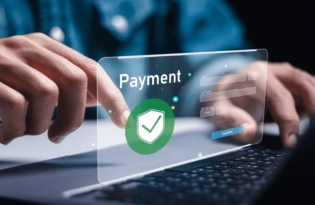Three ways to build competitive advantage by improving supplier experience
The rise of the digital marketplace is set to continue. So how can you gain an advantage over your competitors? Well, one way is by improving the supplier experience…

Introduction
It’s a fact that digital marketplaces play a more prominent role in our lives than ever before, and that proliferation is only accelerating. Whether Amazon and Taobao for e-commerce, Airbnb and Booking.com for travel, or Upwork and Fiverr for professional services, the hypergrowth trajectory of these already large companies continues to attract attention, not only from marketplace participants, but also their upstart competition.
In fierce competition for buyers, marketplaces often differentiate between each other through product variety, quality of sellers and service providers—also considered “suppliers”—who join the marketplace from around the globe.
The challenge for marketplaces, then, becomes how to attract and retain quality supply to maintain their competitive edge. Lowering a marketplace’s revenue yield such that suppliers can keep more of of the buyer’s payment is one approach, however, it can hinder marketplace growth.
“Another solution? To keep supplier satisfaction levels high by catering to their needs, which in many cases can be more effective than marketplace pricing alone.”
What motivates a supplier to work with a marketplace?
We’ve heard several themes time and again from our supplier customers that motivate them to work with a marketplace:
- Receiving money with low fees, on time
- Acquiring customers in new locations
- The ability to speak with someone quickly as questions arise.
When marketplaces use Payoneer, they’re able to provide suppliers with assurance across each of these components using our unique infrastructure.
Here’s how to improve the supplier experience:
1. Improve supplier profit margins
Payoneer partners with dozens of banks and financial institutions worldwide in order to maintain a redundant network; we often have multiple providers in each of the 200+ countries and territories where we process money. As a result, we are able to deliver funds on time, offer competitive rates for foreign exchange, and settle funds locally (meaning, in the currency of that country) to the supplier more often. By building redundant, scalable infrastructure, we’ve assured suppliers that they will pay less and receive their funds faster.
2. Give suppliers more choice for where to receive funds
Suppliers have preferences for where to receive funds depending on fees, capital controls of the country where they operate, and how they spend money. Many small freelancers or vacation rental owners prefer to have funds loaded onto a prepaid card, where large companies selling on e-commerce marketplaces often want funds transferred directly to their bank account. Regardless of destination, marketplaces can integrate Payoneer’s infrastructure and access the full breadth of options to pay suppliers.
3. Give suppliers 24/7 support in their native language
When questions arise, especially questions about money, getting an accurate answer quickly is paramount. Suppliers who approach Payoneer’s customer care team, which is on staff and available around the clock, can submit questions over chat, email, or phone. We pride ourselves on our ability to support customers in 40+ languages with staff located worldwide and view ourselves as an extension of our marketplace partner’s support team.
Conclusion
Attracting and managing suppliers on a marketplace is critical to the success of any marketplace business model. While competition can be fierce, marketplaces who maintain a high-quality supplier base have a competitive advantage over those who aren’t paying close attention. For those marketplaces who choose to leverage the global community of sellers and service providers, supporting them well creates a stronger likelihood for success.
Related resources
Latest articles
-
How to simplify payment operations with Payoneer’s automation feature
Save time, reduce costs, and eliminate errors with Payoneer’s new payment automation feature.
-
How to prevent online payment fraud as an SMB
Prevent online payment fraud by overcoming challenges like phishing, fake accounts, and account takeovers (ATO) with enhanced security features from Payoneer.
-
Amazon Fees & Policy Updates 2024
Amazon regularly makes planned updates to fees and policies that may impact Payoneer customers that sell on Amazon. To keep Payoneer customers informed regarding upcoming and past updates, we’re providing a list of known changes to Amazon fees and Policy updates.
-
How Payoneer’s target exchange rate feature will help you save more on bank withdrawals
Boost savings with Payoneer’s target exchange rate feature.
-
Navigating phishing attacks: A guide to keeping your Payoneer account secure
Keeping your funds safe is our number one priority at Payoneer. While phishing attempts can happen, arming yourself with knowledge is key to keeping your data and money safe
-
Zoho Books and Payoneer integration guide
Learn how to seamlessly integrate Payoneer with Zoho Books. Follow our step-by-step guide to connect your accounts, create invoices, and manage payments efficiently. Optimize your financial operations today!














